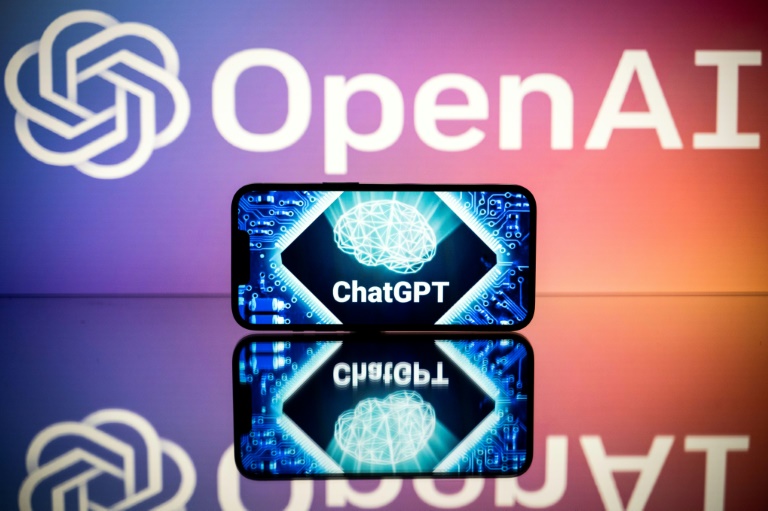Artificial intelligence, or AI, has been increasingly present in everyday life for decades, but the launch of the conversational robot ChatGPT marked a turning point in its perception — © AFP/File Camille LAFFONT
ChatGPT is powerful, the novel language model is the largest ever created, with 175 billion parameters behind its functionality. It is also becoming more widely used. These applications include more than simply collating information; associated (and more creative) developments include writing essays and textbooks.
Yet, despite its growing popularity and millions of users, ChatGPT has been criticised for generating unreliable and biased search results. This includes muddled statistics and cases of producing sexist or racist statements.
In addition, the creative abilities of the artificial intelligence tool have been questioned, demonstrating that although there are fears about AI becoming smarter than humans (and what might happen), as voiced by Geoffrey Hinton this week, there remains some way to go before AI treads the virtual boards at the theatre of drama, song, comedy, or dance.
A recent example of the creative critique directed at ChatGPT is in the form of books written using the software. These have generally generated not only mediocre sales and but also lukewarm reviews on sites like Amazon.
Another area of apparent creative flux is poetry. A recent media report on Vice, for example, concluded that “ChatGPT Is Pretty Bad At Poetry, According To Poets”.
There are alternative AI platforms, however, that might prove to be better composers. Applications created by INSEAD’s AI lab using exacting rules can potentially be more useful and reliable than ChatGPT, as an example. One of these applications is TotoPoetry, a poetry generator trained on a rule-oriented approach to AI.
Philip M. Parker, INSEAD Chaired Professor of Management Science and founder of the INSEAD AI lab called TotoGEO, claims that the lab’s algorithms are the first to achieve three milestones:
- The world’s longest poem,
- The first unabridged dictionary consisting of definitions written in verse across some 20 genres of poetry,
- The largest collection of poetry written by the same source.
Parker gives an example of how the rules-based algorithms of TotoPoetry is superior to the deep-learning ones of ChatGPT, which he says are open to guesswork. Here are the results when the two AI applications are prompted to write a didactic limerick about love:
Poem #1: ChatGPT
There once was a love so fine,
It shone like a bright sunbeam,
It brought joy to every day,
And made everything gleam,
It was a love that was meant to be, not a scheme.
Poem #2: TotoGEO
There was a young girl from the Dove,
And she wanted a word for love.
Like flesh injection?
No, it’s affection!
That literate gal from The Dove.
Which do you think is the best?
Poem #2 is the better limerick, says Parker, because it is a limerick and defines love as affection. The ChatGPT-generated poem, in contrast, does not conform with the strict rhyme scheme of limericks. It also does not inform the reader that it does not know how to write limericks. As a result, a young reader might infer that Poem #1 is a limerick, and forever be misinformed.
Following TotoPoetry, the INSEAD TotoGEO AI lab will launch further AI applications in the coming months, including a new search engine, a newspaper generator, and a Wikipedia-like website.

